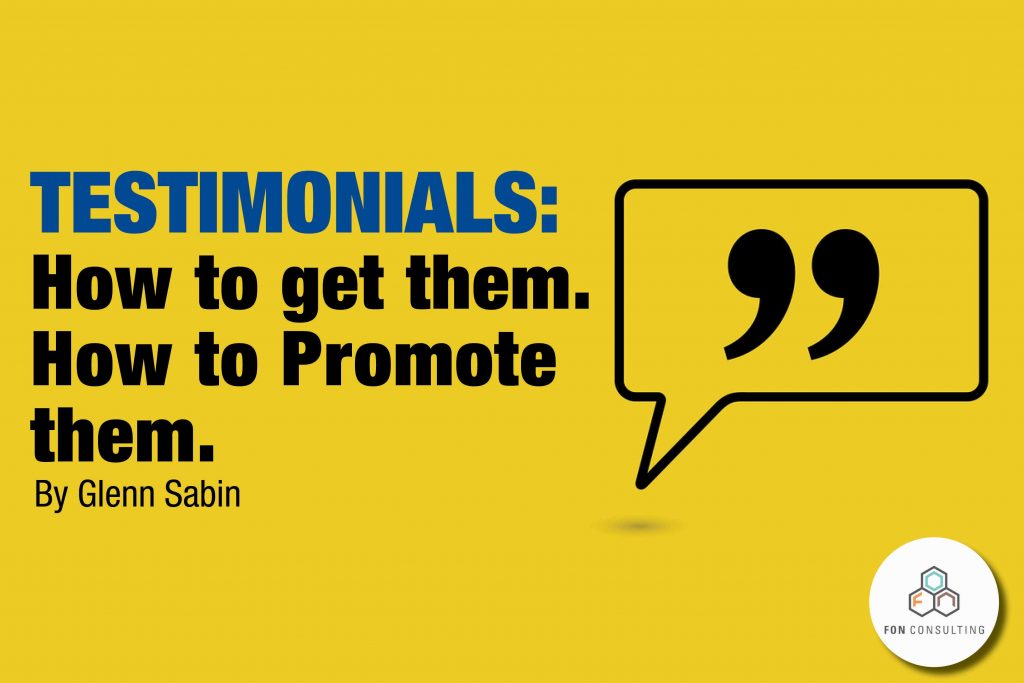We live in the age of social proof, where the opinions of complete strangers can greatly impact our buying decisions.
Why Testimonials are Essential

Consumers trust the recommendations of their peers at a whopping 92%, and recommendations of strangers at 70%, according to Nielsen research.
Given that testimonials significantly influence a prospective customer or patient’s proclivity for your brand, it is incumbent upon you to play an active role in what is said, and where it appears.
This is especially important for integrative health and functional medicine brands, because the delivery of care—and the many products and services in the market—varies greatly from conventional medicine, and can be best messaged through happy customers.
Testimonials are different than reviews. The latter, on third-party rating sites such as Yelp, social media reviews on a Facebook business page, Google My Business page, and any one of a slew of local directories and physician ratings sites, do not offer you full control.
And while positive word-of-mouth activity is fantastic, it is not as manageable as a testimonial.
Don’t misunderstand: Yelp and these other platforms and directories are hugely influential, but you have no control over what is posted by others or how and where it is displayed.
You, as a business owner or business development associate, can ask for a testimonial in a certain way that will influence the response, shape the outcome, and have complete control of its circulation (how, where, and when it is promoted).
How to Ask for a Testimonial
Simply asking for a testimonial, which often takes some follow-up and gentle reminders, does not guarantee the result will be all that helpful for your brand and business. Some testimonials can lack gravitas.
The most powerful testimonials tell stories, using a problem/solution framework that connects emotionally.
As an aside, posing the right questions as a part of your testimonial request provides an important opportunity to discover problems and how best to solve them.
Ask These Five Questions to Elicit an Impactful Testimonial
- What was your major concern when you decided to purchase the product/service?
- What problems/needs did you have before you engaged, and what were the benefits after engagement (results)?
- What specifically (feature, benefit, process, customer care) did you like the most about our service/product/program?
- Would you recommend our service/product/program to others?
- Are there other factors about our product/service that you would like to share?
Customize the questions above for your company’s specific needs. This framework provides solid guidance for testimonial writers to provide powerful praise of your brand. With the client’s permission, this also allows for the creation of longer stories—mini case studies—to support your products or services.
Get to Prospective Testimonial Givers Early… And Don’t Be Shy
The best time to ask for a testimonial is shortly after an engagement successfully ends or, in the case of a product purchase, a week or two after the sale. Get to recent customers while your brand is fresh in their mind.
And don’t be shy. It is okay to follow up with a friendly reminder.
Depending on your exact type of business and what you are selling, a manual and personalized process may be better than automation (think: Amazon emails that follow up on purchases and ask for reviews).
Important Elements to Build Powerful Testimonials
- Edit the testimonial for concision and clarity, retain the customer’s voice, and send back to customer for approval.
- Ask for photograph—a picture of a happy customer makes a huge difference when engaging others.
- Having the date, place, and name of the person providing the testimonial (as applicable to your specific business) allows for authenticity and provides a frame of reference.
- Link to customer website (if B2B testimonial)—a win/win.
- Permission to use name/likeness as testimonial (especially important if this is a patient.)
If you want to up your testimonial initiative, go after short (under 90 seconds) video testimonials. These are powerful, and can be created inexpensively, either in your local place of business, using an inexpensive video setup (iPhone, tripod, lavaliere mic, basic lighting), or customer-provided
How to Promote Your Testimonials
Website
There is no hard and fast rule that testimonials must live only on a dedicated testimonial page. Some folks never visit those. Scatter them throughout your site.
- Testimonials page.
- Homepage (rotating carousel, or call-out a couple and link them to testimonials page).
- About page.
- Services page. Products page.
- Blog (sidebar or under blog text is best).
- Contact page.
- CTAs (calls-to-action; use testimonials to help convert visitors to action-takers).
Case Studies
If you use case studies, give thought to where testimonials may best support the narrative and facts you are presenting.
Enjoying this article? Subscribe and get our latest, delivered straight to your inbox.
Top of Form
Bottom of Form
Top of Form
Bottom of Form
Collateral—Digital and Print
This can be a product one-sheet, brochure, a community event you are hosting (digital/print: think Event Brite, Facebook and fliers), print ads… all collateral should be considered for elegantly embedding testimonials.
Email Marketing Drip Campaigns
If you are using email drip campaigns to stay engaged with prospects and customers (including patients), testimonials are perfectly matched to include in select messages in the sequence.
Social Media Posts and Advertising
Again, it is typically more powerful to have others sing your company’s praises than relying on the best work of your copywriters—though that is important, too. Social media posts and targeted social advertising are an excellent way to build social proof and clout with prospective buyers.
One Last Tip
Embed a linked Yelp logo with star rating on your site’s testimonial page to give happy brand ambassadors a powerful third-party venue to post their own review (testimonial). This also allows those in the decision-making process to include another, impartial source in their vetting process.
Takeaways
- Never underestimate the power of a testimonial.
- Ensure you obtain testimonials through a structured method to ensure the best outcome.
- Be creative in the way—the places—you share testimonials. Think inside and outside the social media and ratings websites box.
 About Glenn Sabin and FON / Glenn is director of FON Consulting, a leading strategy and business development consultancy specializing in the integrative health and medicine sector. FON’s clients span from medical practices, hospitals and health systems, to nutraceutical, pharmaceutical, and media companies. Glenn brings economic and moral clarity to the misnomer that health creation and promotion cannot align with profitability.
About Glenn Sabin and FON / Glenn is director of FON Consulting, a leading strategy and business development consultancy specializing in the integrative health and medicine sector. FON’s clients span from medical practices, hospitals and health systems, to nutraceutical, pharmaceutical, and media companies. Glenn brings economic and moral clarity to the misnomer that health creation and promotion cannot align with profitability.
Prior to launching FON in 2009, Glenn was the CEO of JazzTimes, Inc., an entertainment-based media and marketing agency headquartered in the Washington, DC metro area. After a 25 year tenure, and achieving exponential revenue growth, Glenn exited JazzTimes, Inc. to launch FON.
The shift from entertainment media to integrative health. In 1991, Glenn Sabin was a 28-year-old newlywed diagnosed with chronic lymphocytic leukemia (CLL), an incurable cancer. He created his own medically monitored and carefully researched lifestyle changes, including a whole foods predominantly plant-based diet. Glenn would conduct his own, informal, single patient clinical trial, which was chronicled by Dana-Farber Cancer Institute and his personal oncologist Lee Nadler, MD, dean for clinical and translational medicine at Harvard Medical School. Glenn achieved a complete remission from CLL without conventional cancer treatment. His case is part of the medical literature.
Glenn is participating in, and advising Harvard’s Bioinformatics Department on its People-Powered Medicine NEER Study, an initiative investigating exceptional responders. He was the recipient of American College of Nutrition’s 2017 Communications and Media Award. In 2017 Glenn published his popular memoir, n of 1: One Man’s Harvard-Documented Remission of Incurable Cancer Using Only Natural Methods. www.fonconsulting.com, www.glennsabin.com





